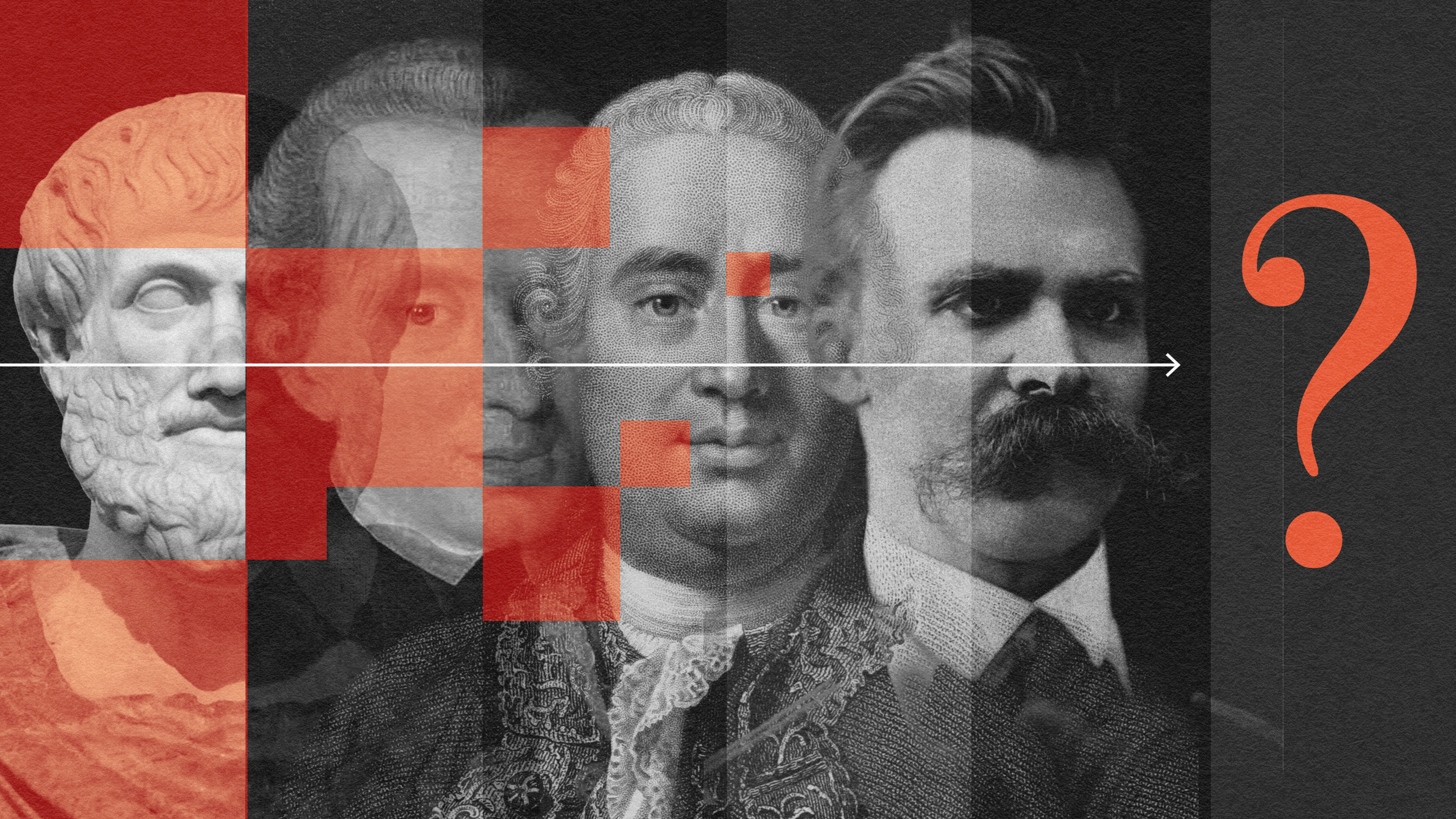The overlooked philosophy that could shed light on reality’s deepest mysteries

- Scientists often claim they don’t need philosophy, but their statements often reveal hidden philosophical assumptions.
- The divide between analytic and phenomenological philosophy has led to narrow conversations in science, which overlook crucial aspects of human experience.
- Bridging these traditions could open up new perspectives for solving some of science’s greatest mysteries: the nature of time, quantum mechanics, and even life itself.
Over the past few decades, some scientists have claimed that science does not need philosophy. Usually, the next statement out of their mouths is one rich with philosophical assumptions they’re not even aware of. It’s kind of sad. Fortunately, there are lots of great examples of scientists and philosophers engaging in rich and fruitful dialogues. As a physicist with a longstanding interest in philosophy, I’m happy these discussions are happening. Still, I think something significant is missing, and I’d like to drag that absence out into the light.
When we talk about the “philosophy of science” or even “philosophy and science,” the conversations are generally monotone. What I mean by this is that the philosophies represented in the discussions come from a narrow part of the world’s heritage of philosophical inquiry. I think this must change if we want answers to key scientific questions: the nature of time, quantum mechanics, and even life itself. Today, I want to focus on one philosophical field in particular: phenomenology.
Phenomenology
For more than a century, there has been a divide in Western philosophy that pits the so-called analytic tradition with the phenomenological tradition. These are two very different approaches to philosophical inquiry. They have different methods and tend to see philosophy’s basic questions in very different ways. In fact, one might say they are interested in very different kinds of questions, such as “What is philosophy for?”
It’s also noteworthy that the analytic tradition is often associated with the English-speaking world (e.g. England and the US), while phenomenology is sometimes called “continental” philosophy, where the continent in question is Europe. So, what is the difference between these approaches? Hopefully, no professional philosopher will get too angry with the descriptions I’ll give, but they come from my experience in theoretical physics and astrophysics.
For me, the analytic tradition is very much about evaluating the “truth content” of statements. We want to say things about the world and be able to tell whether our statements are true. That’s one reason why a branch of analytic philosophy is very concerned with logic: its structure and limits. Even when it is not explicitly about the formal use of logic, the analytic tradition is often interested in formal approaches to unpacking questions revolving around what we can know and how we can know it. For instance, an analytic philosopher might ask, “How do we logically validate the statement that time moves in one direction?”
With that comes a kind of “realism” that often, but not always, assumes the world is out there by itself and our presence as the locus of its experience is not important. That’s why the analytic tradition tends to be the philosophy that gets used in discussions about science and philosophy. There is an explicit and unstated philosophical assumption for most scientists that science is only about the world independent of us.
Phenomenology, on the other hand, is not so interested in the formal truth content of statements people try to make about the world. Instead, it’s interested in the structure of experience. Phenomenology is interested in us at the center of our worlds because, for phenomenology, that’s really the only realism there is. For example, instead of asking how to logically validate the statement that time moves in one direction, phenomenology might ask, “How does the experience of time passing feel from the perspective of being a living, conscious person?”
I first encountered this way of doing philosophy as the hardcore backbone of the 20th-century philosophical movement known as existentialism. The writings of Jean-Paul Sartre and Simone de Beauvoir exemplify popular versions of existentialism. They were seen as quite radical at the time because they took ordinary life as a valid topic of philosophical inquiry. Existentialism asked questions like, “What are we directly ‘given’ in being present every day and what are our responses to it?” Existentialist novels and plays focused on a certain aspect of this question, including alienation in modern technological societies. At the time, these were really important explorations of how rapidly changing 20th-century societies were uprooting how people experienced life. They were also easy to parody when lesser writers histrionically got hold of the theme.
Experience as a starting point
Beyond and below the literary movements of existentialism, however, was phenomenology. Its job was to do the theoretical heavy lifting needed to take experience as the starting point for a new kind of philosophical investigation. The mathematician Edmund Husserl was phenomenology’s founder. Writing across the first few decades of the 20th century, Husserl saw that it was necessary to directly confront how experience lies in our blind spot. Experience is not the abstract idea of being “a subject” or an “observer.” Instead, experience is so close and immediate that we have lost the ability to see it. That’s a problem because it is the necessary precondition that must already be happening for us even to formulate the idea of subjects or observers. We must always already be embedded in what Husserl called the “lifeworld”: a seamlessly whole, ongoing, enacted, and embodied being. The lifeworld is already there — before we step back and imagine an objective third-person view from which science begins. What Husserl wanted to create was a method for systematically exploring the structure of experience.
In Europe, phenomenology played an enormously important role in setting the agenda for philosophy. In the US and Britain? Not so much. It’s as if the two domains were speaking different languages. Working my way through undergraduate philosophy courses, I found most of the professors were coming from the analytic tradition. Only a few were versed in phenomenology, and the two camps didn’t seem to like each other very much.
This division always seemed a shame to me because I saw enormous value in both. But in phenomenology, I saw deep insights into a question that other branches of philosophy seemed to ignore or take for granted. More importantly, because philosophy and science seemed so firmly grounded in the analytic tradition, the recognition that experience lies in our blind spot never made it into scientific discourse. Most of the time, I barely see phenomenology mentioned in popular accounts of science and philosophy. Even when it does get mentioned, it’s often as a straw man. That straw man misses the essential points Husserl and his successors were exploring.
Things may be changing though. I’m currently reading a wonderful book called A Phenomenological Approach to Quantum Mechanics by Steven French. The book is important because French is an influential philosopher of science whose work has not been within phenomenology. A lot of us working in QBism have also been exploring how Husserl’s approach can bring something essentially new to the quantum table, so French jumping into the fray is exciting. We might finally see a serious dialogue between the traditions — one that will hopefully enable science and its most difficult problems to reap the benefits.





